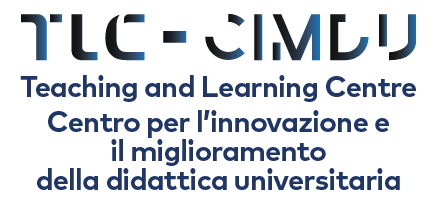Degree course in LAW (Codice 471)
WEB SITE Degree course in LAW (Codice 471)
Educational objectives:
The Degree Course:
- provides full training in core subjects as well as in class-specific ones, with respect to the subject areas defined by Ministerial Decree 25/11/2005; - Guarantees that the student's education is consistent with the class educational goals, orienting the contents of the course to the latter;
- Incorporates into the course affine or complementary subjects to make it relevant and appropriate for access to the professional sectors of the law degree;
- Proposes a training project enabling students to profit from the acquired knowledge and skills, developing them under a technical and methodical perspective;
- provides teachings and methods promoting the acquisition of adequate knowledge and skills with respect to the institutional aspects of legal systems, professional ethics, logic and legal and judicial arguments, legal informatics, legal language in at least one foreign language.
Professional opportunities
Profile: Jurist Functions:
- Graduates in Law possess general knowledge and skills enabling them to effectively orient themselves in the direction of a subsequent professional training in any area of positive law, also answering to the demand from the companies. Likewise, jurists possess all the necessary elements to continue their studies in every field of scientific research in the legal field.
- Graduates at the Agrigento course, due to the specificity of the educational programme, acquire the ability to legal use competences and knowledge useful for the participation in competitions at the public administrations in the area of Agrigento dealing with the management of artistic and monumental heritage and the promotion of tourism.
- Graduates at the Trapani course can use their legal knowledge (also) in supporting economic operators in their national, or cross-border trading transactions, because of the specificity of the training offered to them, or more generally in forms of strategic collaboration with companies of other European regions or North African countries Skills: Graduates in Law should:
- be able to use the tools and methods of case histories, demonstrating adequate skills for deepening, evaluating, and analyzing the principles, institutes, and models of positive domestic and supranational law, s based on the historical knowledge acquired, necessary for the understanding of the legal institutes, in their process of evolution and transformation, for a “contextualized” assessment of the same;
- be able to draft legal, procedural, negotiating in the general sense texts, clear and comprehensible in terms of language and relevant and appropriate in terms of effectiveness in the various sectors concerned. This also through the support of computer tools;
- apply the techniques of law interpretation and analysis of individual cases, arguments and representations for the solution of interpretative problems and application of normative provisions to concrete cases;
- know how to deepen, refresh and update their knowledge and skills, in the framework of lifelong learning.
Jurists graduated from the Agrigento and Trapani channels of the CDS, through internships at local authorities, companies and professional offices, must also acquire specific competences regarding complex institutional dialogue, ie between(public and non-public) different subjects) depending on different competences, mainly related to administrative decentralization and to the evolving role of local authorities.
Career opportunities: Jurists traditionally work in legal professions, the judiciary and the notary;they also have the possibility to spend their knowledge and skills in national, supranational and foreign top-level private and public companies and institutions.
In addition to the traditional job opportunities of the law degree, a graduate in Palermo may wish to join international bodies, as “legal expert in Public Authorities" or manager of cultural, scientific, national or supranational national associations, given the specific international orientation of the Degree Course. Graduates in Trapani may spend their knowledge and professionalism in the field of entrepreneurship as "legal experts in the enterprise", in accordance with an educational programme aimed at enhancing the relationship with the productive and economic reality, both through internships, and by treating relationships with the representative subjects of local authorities, businesses and professional categories.
Final examination features
The final exam of the Degree Course consists of the presentation and oral discussion of a Thesis, originally written on a mono - or multidisciplinary topic; Its contents and the discussion should enable the assessment of the level achieved in the technical-scientific and professional preparation, as well as in the argumentative and dialectical capacity with respect also to the questions posed by the members of the Examining Board.
The final work, even respecting originality requirements, may have a reconstructive character of the state of the art on a particular subject or more distinct experimental traits. The thesis supervisor must be a professor of the scientific-disciplinary field related to the subjects covered by the thesis. The supervisor may be assisted by another professor, researcher or external expert, acting as a co-rapporteur in the didactic activity associated with the preparation of the final work. The discipline related to the final exam is available on the course website.





























